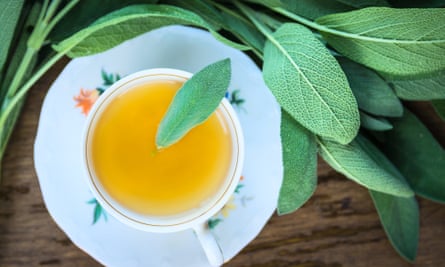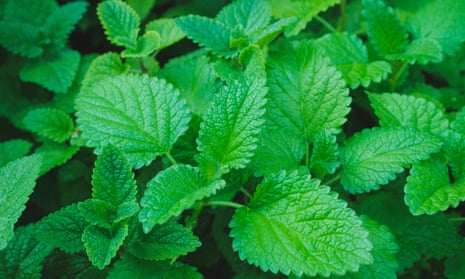There’s nothing like a long-distance flight to test your immune system – my neighbour spluttered while the row behind hacked and the other side sniffled. Once home, and with the day the right way up, I lost no time in gathering some herbs to keep those germs at bay. The common cold is a beast, I believe, that cannot be tamed – you just have to ride it out – but a choice handful of our common culinary herbs are brilliant medicine. And they are far kinder to you, the environment and your purse than many over-the-counter cold medicines.
Rosemary and sage are classic herbs for colds and sore throats. Both are known for their antimicrobial and antiviral properties. Rosemary is said to stimulate the circulatory system and thus is thought to encourage blood flow to the brain to relieve headaches. I find a steam inhalation of a handful of bruised stems and leaves works wonderfully for blocked sinuses.

Sage is good for the first tickle of a sore throat, and is known to tone irritated tissues and kill bacteria. It’s a strong-tasting tea made more palatable with the addition of dried apple and a little honey, but it certainly soothes. You can combine it with thyme, which is a good expectorant.
Lemon balm, Melissa officinalis, may be in thin supply at this time, but it is usually possible to find some low-growing leaves. It is a gentle and kind herb for a cold, helping to sweat out a fever, and has mild antiviral properties. It also has a very mild flavour, helping to improve the taste of other herbs. Again, aim to add a tablespoon of chopped herb to a cup of boiling water.

I’m also partial to adding the weeds ribwort or broad leaf plantain to these teas. Both are known for their astringent and demulcent properties, meaning that they reduce inflammation, particularly of membranes. They are brilliant against insect bites and cuts, but equally, chopped up in a tea, they will soothe irritated mucous membranes, such as sore sinuses. You can use the leaves fresh or dried.
The trick to all of these is to brew a good cup of tea. You want roughly one teaspoon of dried or one tablespoon of fresh herb chopped in a cup of boiling water (200ml). Add honey or lemon peel, if you desire. If you are pregnant, avoid sage, rosemary and thyme, but plantain and lemon balm are safe for general use. If you do not cover the boiled water for 10 minutes, you will lose precious volatile oils. Grandma knew best: use a teapot. If you hate herbal tea, turn the tablespoons into handfuls and add to a bath instead.

Comments (…)
Sign in or create your Guardian account to join the discussion